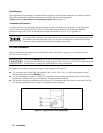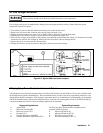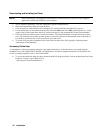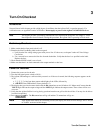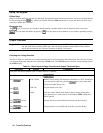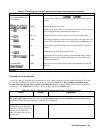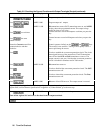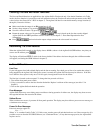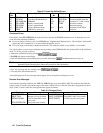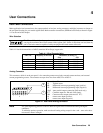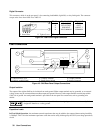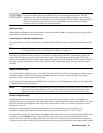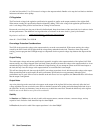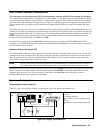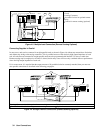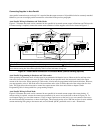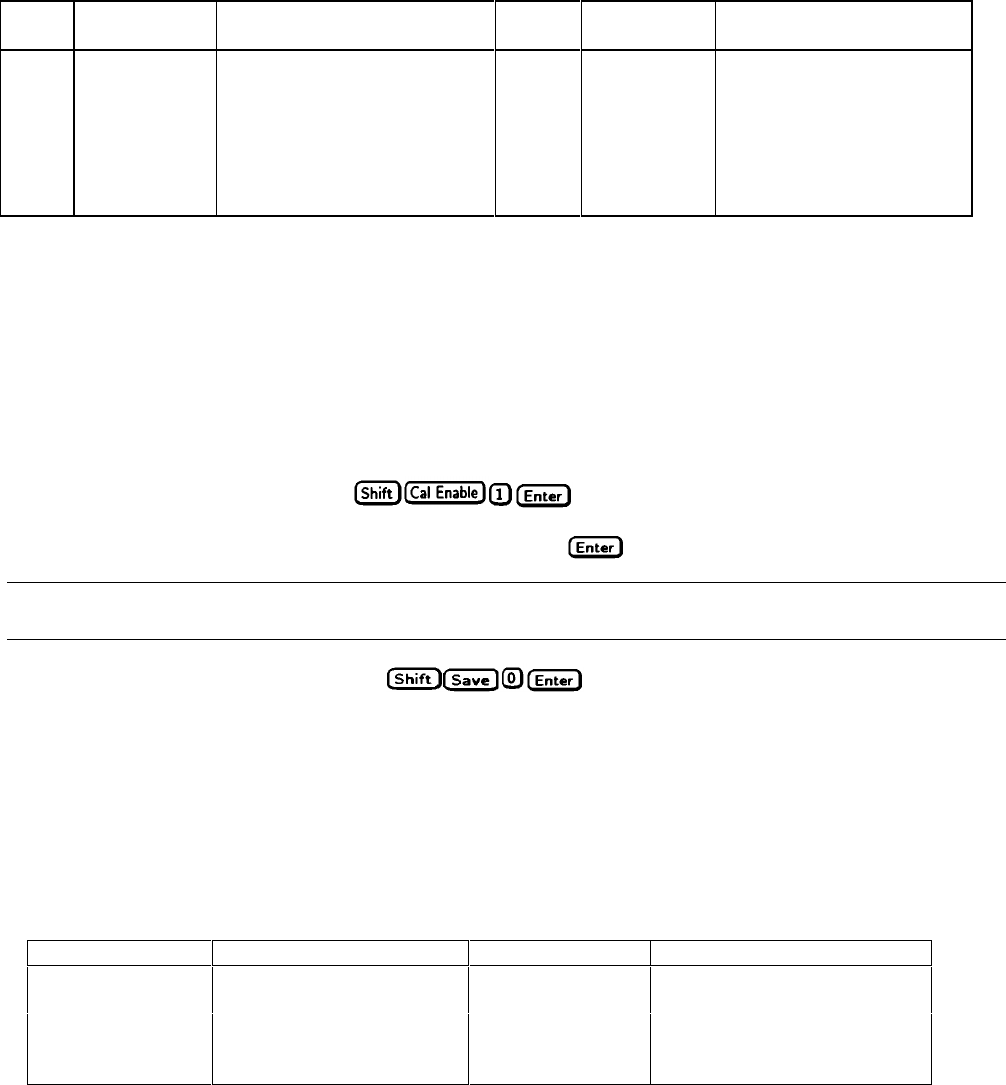
28 Turn-On Checkout
Table 3-3. Power-On Selftest Errors
Error
No.
Display Failed Test Error
No.
Display Failed Test
El
FP RAM
Front Panel RAM E8
SEC RAM
Secondary RAM
E2
FP ROM
Front Panel ROM checksum E9
SEC ROM
Secondary ROM checksum
E3
EE CHKSUM
EEPROM E10
SEC 5V
Secondary 5 V ADC reading
E4
PRI XRAM
Primary external RAM Ell
TEMP
Secondary ambient
E5
PRI IRAM
Primary internal RAM thermistor reading
E6
PRI ROM
Primary ROM checksum E12
DACS
Secondary VDAC/IDAC
E7
GPIB
GPB R/W to serial poll readback
Checksum Errors.
If the display shows EE CHKSUM, the Agilent SAS has detected an EEPROM checksum error. A checksum error can
occur due to the following conditions:
■ Excessive number of write cycles to an EEPROM (see "Supplemental Characteristics"). This condition, which would
appear only after extended use, is not recoverable and requires service.
■ Loss of ac input power during a checksum calculation. This condition, which is very unlikely, is recoverable.
You may be able to recover from a checksum error by writing to the EEPROM while the Agilent SAS is in the calibration
mode. To do this, proceed as follows:
1. Enable the calibration mode by pressing
.
2. PASWD will appear on the display.
3. Press the number keys corresponding to the password, followed by
. The Cal annunciator will go on.
Note On new equipment, the default calibration password corresponds to the model number (such as 4350). See
appendix B under Changing the Calibration Password for more information.
4. Save any operating state (for example, press ).
5. Turn the power off and then back on.
A normal display free of error messages should appear. If not, the Agilent SAS requires service.
Runtime Error Messages
Under unusual operating conditions, the VOLT or AMPS display may show +OL or -OL. This indicates that either the
output voltage or current is beyond the range of the meter readback circuit, or that the value that is programmed is out of
range. Table 3-4 shows other error messages that may appear at runtime.
Table 3-4. Runtime Errors
Display Meaning Display Meaning
EE WRITE ERR
EEPROM status timeout
UART FRAMING
UART byte framing error
SBUF FULL
Message too long for buffer
UART OVERRUN
Overfilled UART receive buffer
SERIAL DOWN
Failed communication with
front panel
UART PARITY
UART byte parity error panel
STK OVERFLOW
Front panel stack overflow



